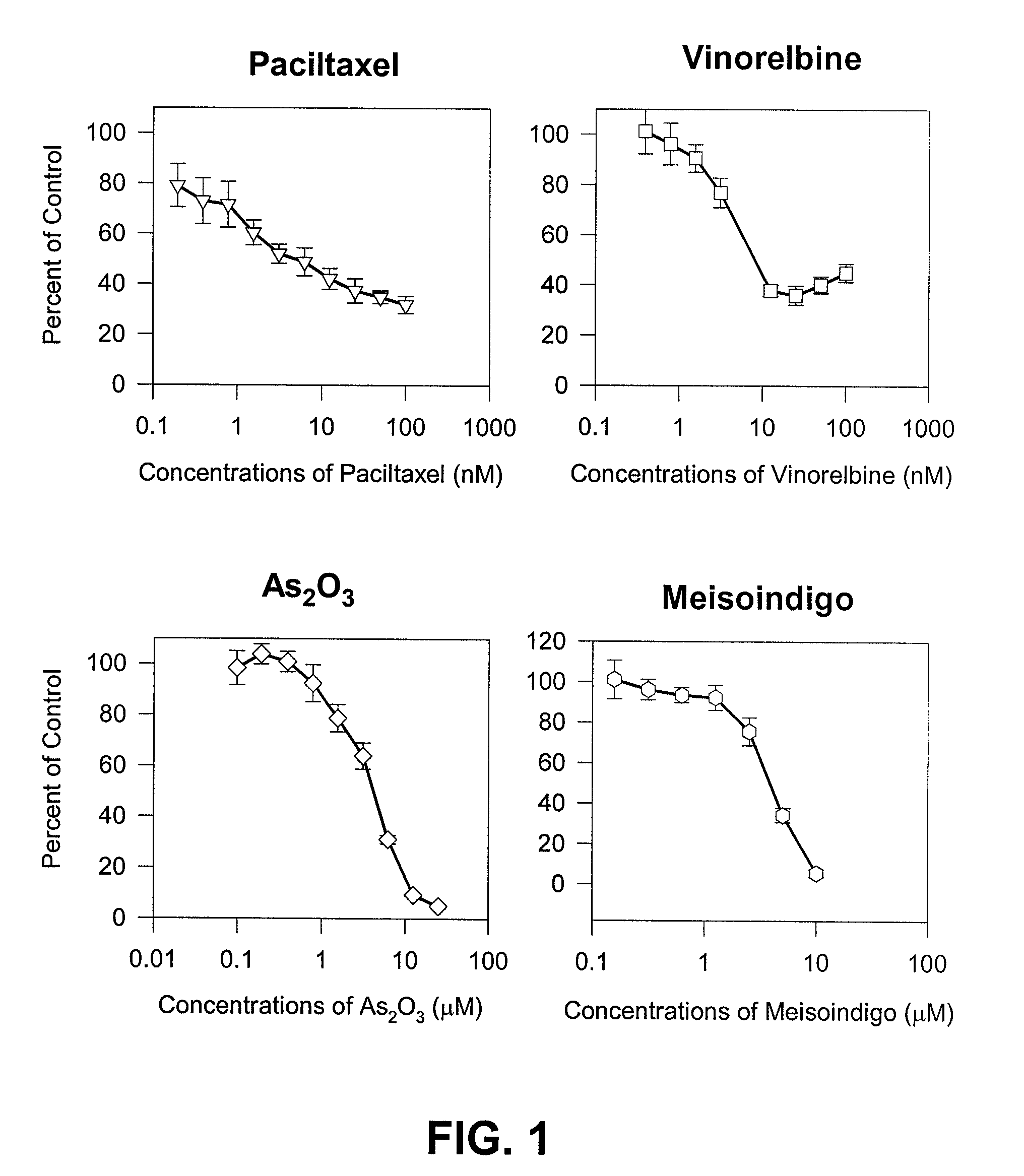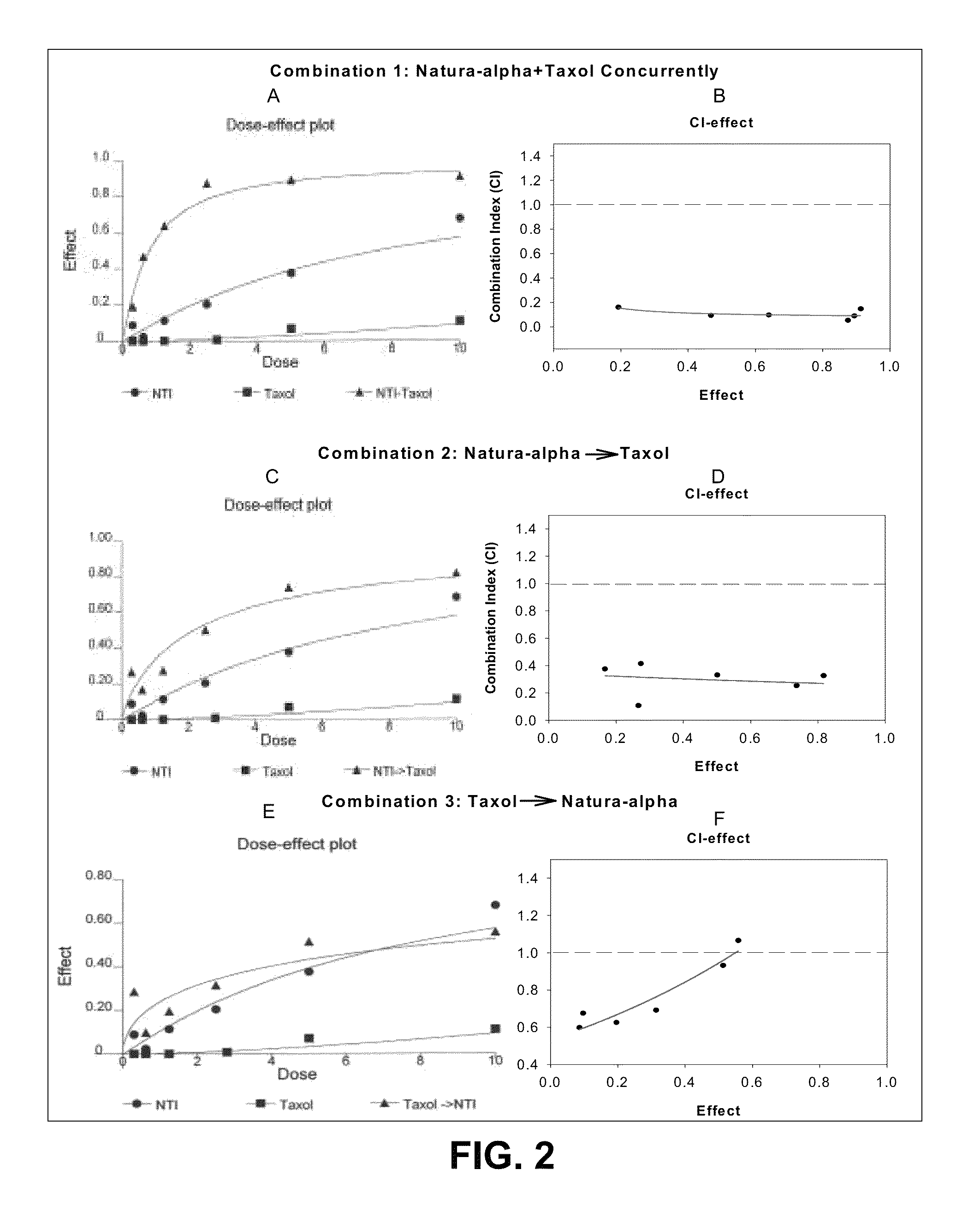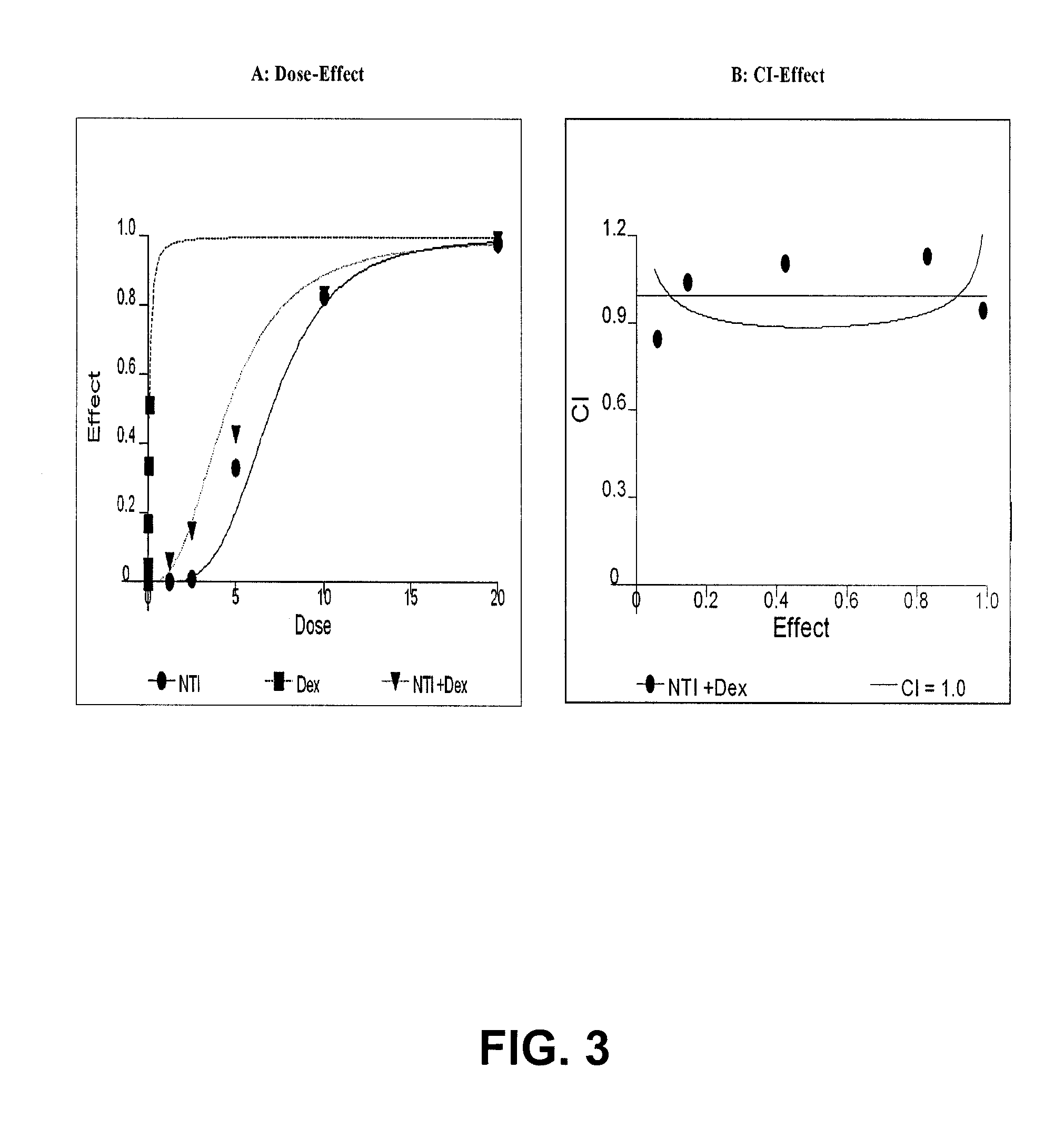Method of treating androgen independent prostate cancer
a prostate cancer and independent technology, applied in the field of prostate cancer treatment, can solve the problems of cancer invariably recurring, lack of long-term survival evidence, limited treatment options for patients with aid prostate cancer, etc., and achieve the effect of enhancing the inhibition of stat3 and inhibiting the activity of nf-b
- Summary
- Abstract
- Description
- Claims
- Application Information
AI Technical Summary
Benefits of technology
Problems solved by technology
Method used
Image
Examples
example 1
Inhibitory Properties of N-methylisoindigo on Growth of Androgen Independent Prostate Cancer
[0068]Drug Substance and Drug Products:
[0069]N-Methylisoindigo drug substance and drug product (capsules) was manufactured under cGMP guidelines and structure confirmed. The drug substance batch# NAT-0501, NAT-0502, NAT-0601 and drug product F070905-002 and B070918-002 were used in this study.
[0070]Reagents:
[0071]Paclitaxel, dexamethasone and other chemicals were obtained from Sigma Chemical Company (St. Louis, Mo.). Phosphorylation-specific antibodies were purchased from Cell Signaling Technology, Inc. (Danvers, Mass.).
[0072]Cell Cultures:
[0073]Human cancer cell lines of prostate LNCaP, DU 145 and PC-3 were purchased from American Type Culture Collection (Rockville, Md.). Androgen independent subline LNCaP AI was kindly provided by Dr. Ferrari (5) at NYU Cancer Institute, New York. The cells were cultured according supplier's instructions. Prostate cancer cells AIPC101 were isolated from hum...
example 2
Induction of Apoptosis by N-methylisoindigo in Prostate Cancer Cells
Method
[0093]Reagent:
[0094]N-Methylisoindigo was from the same resource as described in Example 1, and was prepared at 20 mM in DMSO (dimethyl sulfoxide), and stored at −20° C. until use.
[0095]Cell Culture and Treatment:
[0096]LNCaP and LNCaP AI were from the same resource as described in Example 1. LNCaP and LNCaP AI cells at exponential growth phase were treated with different concentrations (0 to 20 μM) of N-methylisoindigo for 48 hours. Analysis of cell cycle was performed using a Becton-Dickinson FACScan flow cytometer with the methods described previously (21). The cells were fixed with 80% ethanol at 4° C., and incubated on ice before the DNA was stained with propidium iodide (50 μg / ml).
Results and Discussion
[0097]Tables 2 and 3 shows the effects of N-methylisoindigo on cell cycle and induction of apoptosis in both androgen dependent and independent prostate cancer. N-methylisoindigo significantly induced apopt...
example 3
Inhibition of N-methylisoindingo on Invasion of Androgen Independent Prostate Cancer
[0100]Reagent:
[0101]N-Methylisoindigo was from the same resource as described in Example 1, and was prepared at 20 mM in DMSO (dimethyl sulfoxide), and stored at −20° C. until use.
[0102]Cell Culture and Treatment:
[0103]LNCaP and LNCaP AI were from the same resource as described in Example 1.
[0104]Invasion Assay:
[0105]Effect of N-methylisoindigo on invasive activity of LNCaP and LNCaP-AI cells was determined via the transwell Madrigal invasion assay (Growth Factor Reduced Matrigel Invasion Chamber). Transwell inserts were coated with Madrigal (Growth Factor Reduced) for 2 hours at room temperature. The inserts were then washed with PBS and used immediately. The inserts are precoated by the company. After rehydration of the insert with medium for 2 hours, LNCaP-AD and LNCaP-AI cells at their exponential growth phases were added to the upper chamber at density of 1×104 cells in 500 ul medium in the pres...
PUM
 Login to View More
Login to View More Abstract
Description
Claims
Application Information
 Login to View More
Login to View More - R&D
- Intellectual Property
- Life Sciences
- Materials
- Tech Scout
- Unparalleled Data Quality
- Higher Quality Content
- 60% Fewer Hallucinations
Browse by: Latest US Patents, China's latest patents, Technical Efficacy Thesaurus, Application Domain, Technology Topic, Popular Technical Reports.
© 2025 PatSnap. All rights reserved.Legal|Privacy policy|Modern Slavery Act Transparency Statement|Sitemap|About US| Contact US: help@patsnap.com



